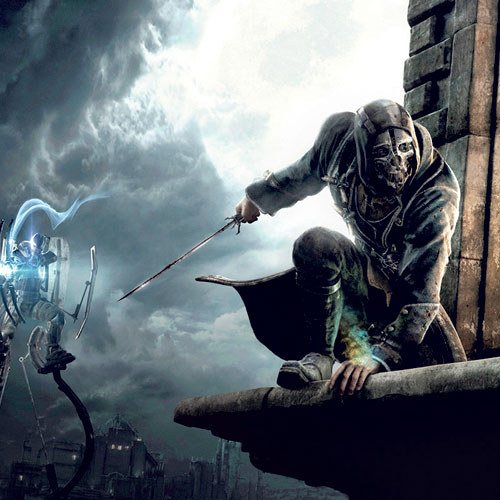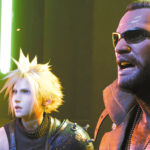‘Dishonored’ Serves Up Revenge With Stealth

By LOU KESTEN, ASSOCIATED PRESS
Midway through “Dishonored” I killed someone. I didn’t intend to; he spotted me as I was trying to sneak past, and I had to shut him up. But even though I was able to complete my mission, I felt like I had failed.
That’s unusual in the violent world of video games, where the default mode is to shoot first and never ask questions. Don’t get me wrong: The protagonist of “Dishonored” (Bethesda Softworks, for the Xbox 360, PlayStation 3, PC, $59.99) is an assassin, and plenty of blood gets spilled no matter how stealthy you are. But there are benefits to being merciful — for one, fewer corpses means fewer rats infesting your beloved city.
It’s thrilling to play a game that rewards you for not doing the things so many other games mindlessly encourage. You can play as a more ruthless assassin, but what’s the fun of that?
“Dishonored” is set in Dun-wall, a city with a passing resemblance to London during the Industrial Revolution. Your character, Corvo, is bodyguard to the Empress, and you become the prime suspect when she is murdered. Fortunately, loyalists think you’re innocent, so they help you break out of jail and set you on the path to vengeance.
A typical mission takes place in a gaudy bathhouse, where your primary goal is to eliminate a pair of sadistic aristocrats. Once you sneak past the guards, you need to tiptoe around the courtesans and their patrons, eavesdropping on their conversations until you can figure out where the targets are hanging out. You also have to deal with the establishment’s madam, a calculating distillery owner and a kinky, blindfolded art dealer who mistakes you for a dominatrix. Again, you don’t have to kill anyone — and figuring out how to complete the assignment without raising any alarms is thoroughly satisfying.
Early on, a supernatural entity called The Outsider gives Corvo a beating mechanical heart that helps the assassin find hidden objects throughout Dunwall. “Bone charms” provide minor boosts to skills, but runes are far more useful: You can trade them to learn entirely new techniques.
The most useful superpowers are “dark vision,” which lets you see guards through walls, and “blink,” which lets you teleport short distances. But you can also slow down time, possess animals and humans, or summon a swarm of rats to devour your foes. It’s a versatile set of skills that gives you a multitude of ways to tackle any mission.
The world of “Dishonored” looks both familiar and alien. There’s a steampunk aesthetic (although, since Dunwall runs on whale oil, “oilpunk” is probably more appropriate) that infuses every location, from pathetic hovels to decadent mansions. The intriguing supporting cast is brought to life with distinctive, angular character design and first-rate voice work from actors like Susan Sarandon, John Slattery and Brad Dourif.
“Dishonored” is a delight, in part, because of a few things it doesn’t have. There’s no multi-player mode, which would be ridiculous in a game about a lone-wolf assassin. And there are none of the bombastic boss battles that nearly derailed last year’s otherwise excellent stealth game “Deus Ex: Human Revolution.”
Co-designer Harvey Smith also worked on the original 2000 “Deus Ex,” and fans of that classic will find much to love in “Dishonored.” It’s the result of a talented group of people being allowed to pursue a vision without having to follow industry trends, and it’s one of the year’s finest games.











